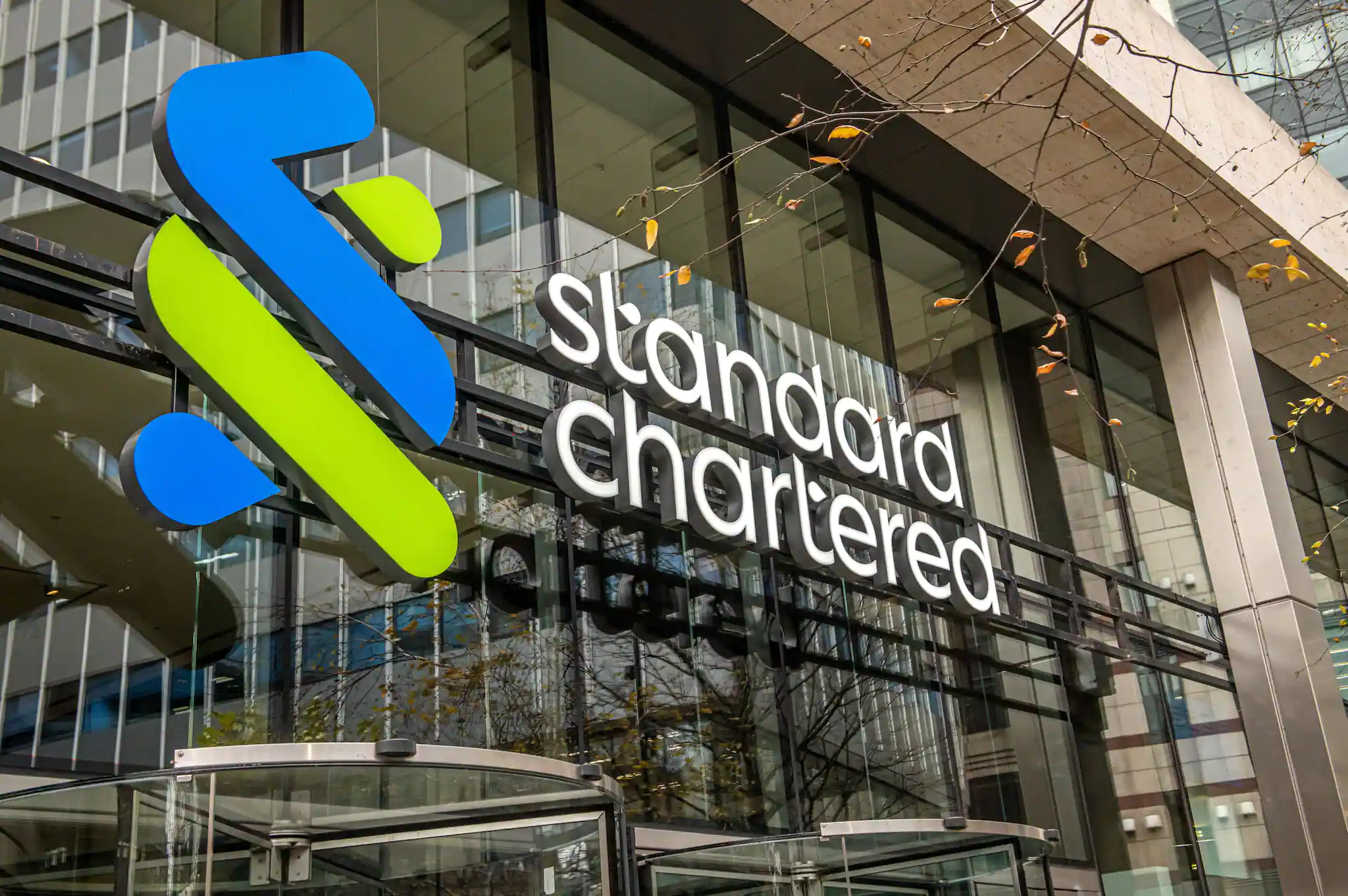In a rapidly evolving world where data is a crucial enabler of digital transformation, there’s a higher demand for a reliable and safe way of storing information. From saving videos, music, images, and other files online using Google Drive, iCloud, Dropbox, and other traditional storage systems, the world is now fast adopting decentralized storage. In this article, you’ll have a full grasp of what decentralized cloud storage is, how it works, and what makes this innovative tech stand out.

What Is Decentralized Cloud Storage?
In decentralized cloud storage, data is stored across multiple networks by groups of people who are rewarded to store and keep data safe to make it accessible. The server used to store this data is hosted by several people instead of a central authority, and each of them gets incentivized via tokens for their contribution.
How Does Decentralized Cloud Storage Work?
A decentralized cloud storage system works in such a way that your data is shared across multiple computers (nodes), which are interconnected on a decentralized peer-to-peer network. This permits you to download files in fragments from the storage whenever you need them. The earliest example is BitTorrent and other peer-to-peer networks.
Centralized vs Decentralized Cloud Storage: Are There Similarities?
Although centralized and decentralized storage are both different methods of storing data, they share a few similarities. Like centralized storage, decentralized storage lets you download your files and get them anytime. Additionally, both storage systems serve the same purpose of helping users keep their files and documents safe.
Centralized vs Decentralized Cloud Storage: How Are They Different?
While centralized cloud storage is run by a central authority, for instance, in Google and Apple’s cloud storage services, decentralized cloud storage runs on a peer-to-peer network by millions of nodes.
More so, while central storage uses fiat currencies for subscription services, decentralized storage lets users rent storage space and pay with cryptocurrency (the file provider’s token). If you use Storj Labs to store your files, for example, you can rent a space based on how big your file is and get paid in STORJ.
In centralized storage, your files are not completely private; however, decentralized storage encrypts your data files automatically. This gives you strong privacy protection and makes sure that no one can change your files.
Benefits Of Decentralized Cloud Storage
There are several reasons why decentralized cloud storage is regarded as one of the most important technologies in today’s world. Let’s take a close look at some of them.
Low Storage Cost
In decentralized cloud storage, millions of nodes act as your network hosts, unlike in centralized storage, where limited groups of people host it. This gives you access to more storage space and lowers the price you have to pay.
Advanced Security And Privacy
Decentralized storage encrypts data to guarantee security. Also, the encrypted data is then split into fragments among millions of participating nodes, which prevents other people from knowing what your saved file looks like.
Faster Network Speed
In centralized storage, it’s likely to experience a congested network. This is due to too much traffic, which is sometimes larger than what the network can process. However, decentralized cloud storage eliminates this problem through peer-to-peer technology, which allows multiple data copies to be stored on different nodes.
Fair Market Pricing
Decentralized storage has a high rate of competition among storage nodes in order to be incentivized. This serves as a reduction in outrageous service fees, as only the strongest nodes get rewarded.
Minimal File Loss
Since several copies of your data are stored across millions of nodes, it’s unlikely that any of your files will go missing amidst transmission errors.
Limitations Of Decentralized Cloud Storage
Despite the potential of this technology, it is facing certain challenges as researchers continue to figure out possible solutions to help it scale better. Here are some of the problems associated with decentralized cloud storage:
Complex Development Process
To develop a decentralized storage network, the developers need to execute the consensus mechanism, which can be difficult to implement. Decentralized cloud storage operates on a Proof-Of-Storage mechanism, which allows every node participant to prove that every piece of data they submit qualifies them to add new data records. This helps to verify the authenticity of files.
Security Risks And Concerns
Despite the high level of security in decentralized storage, hackers can take advantage of blockchain anonymity to maliciously attack the whole network. Although researchers are continuously finding solutions to decentralized cyber-attacks, this might create security concerns among potential users.
Lack Of Trust
Unlike centralized storage networks that are governed by central authorities, decentralized cloud storage network services are not owned by a single entity, and this can make accountability difficult in rare cases when transactions go wrong. Even though developers are relentlessly working to solve this problem, it’s likely to serve as a setback for potential users.
Needs Time To Gain Trust And Mainstream Adoption
Decentralized storage is still developing, and the mainstream audience is still observing how the new tech performs, in the long run, to see whether or not it’s worth adopting for their personal and business purposes.
Factors To Consider Before Choosing Decentralized Cloud Storage
There are several important factors that determine efficient decentralized data storage that is safe for usage. So, before you store your data files on decentralized cloud storage, here are some key factors to consider:
Decentralization Rate
Central authorities don’t have control over decentralized storage, and this is common in every data storage you use. Unlike centralized data storage, decentralized storage doesn’t require you to give out personal information before you can access it. You may want to check for KYC requirements since fully decentralized networks wouldn’t require such details.
Persistence Mechanism
The persistence mechanism, also known as the incentive structure, is a significant element to look out for in decentralized data storage. It helps to keep data safe and has two types; blockchain-based and contract-based.
The blockchain-based persistence mechanism believes in keeping data in check and maintaining it forever. A notable example is the Ethereum blockchain, which strongly believes that there’s a need to account for the whole chain during node operation.
On the other hand, the contract-based persistence mechanism strongly believes that data cannot be stored on the nodes forever. Instead, the storage must leverage smart contracts, and the smart contracts are to ensure that nodes are stored for a specific period of time.
Data Retention
Data retention is another significant factor in decentralized cloud storage. It helps to maintain data using cryptographic challenges issued to nodes. One way you can confirm data retention is to make sure the network operates the proof-of-access mechanism. In this mechanism, a node is required to complete a certain challenge, and after it is successful, it will verify the latest block, including previous data.
Consensus Mechanism
You can check the consensus mechanism through which the data cloud storage operates. Although data storage can have a unique consensus mechanism like a proof-of-storage mechanism, proof-of-work and proof-of-stake are the most common mechanisms upon which others are based.
Popular Decentralized Cloud Storage Projects
Several brands and organizations are tapping into the growth of decentralized data storage to build scalable solutions. Here are some common projects building decentralized storage products:
Storj
Storj is decentralized data storage on the Ethereum network. It has several products that help users store data in a decentralized way and is focused on file sharing. Although its storage side is fully decentralized, the settlement and indexing functions are centralized. Despite this, Storj allows developers to test their capabilities on its alpha network.
Recently, Storj launched a newer version of itself called Tardigrade, a finished product version of Storj. It is an S3-compatible Ethereum cloud storage system that developers can use as a backend layer to build their own products successfully. Storj rewards the host with its token, STORJ, for every unused space they rent out and then makes it available for Tardigrade users.
Filecoin (IPFS)
Filecoin is a decentralized cloud storage system built on the Interplanetary File System (IPFS). It is a new protocol that fetches data according to what it is instead of its location. Filecoin rewards storage hosts with the FIL token for every unused storage space they rent out.
Sia
Sia has been one of the frontrunners for decentralized cloud storage since 2013. After its initial wave from the HackMIT Hackathon, the project started making waves and was successfully launched in 2015 to create a data storage marketplace for underutilized hard drive storage globally.
The platform uses a proof-of-work consensus mechanism alongside a proof-of-storage mechanism to validate proofs and smart contracts. Sia rewards users with Siacoin for every unused storage space they sell on the platform.
Burst
Burst started making waves after developing Burstcoin, the first proof-of-capacity coin. It was the first-ever decentralized cloud storage project to implement the Turing complete smart contract on the Ethereum blockchain. Burst is currently working on a cross-platform mobile wallet called Phoenix and will later work on the PoC3 protocol.
MaidSafe
MaidSafe started in 2006 as a team of people working together to decentralize the Internet. It provides storage for nodes running on the vault network and prevents files from being stored on server networks. Maidsafe is an open-source project that allows everyone to become a storage provider and access public information.
The platform allows developers to directly interact with the network through APIs and uses Safecoin to reward everyone for their contributions.
Swarm
Similar to Storj, Swarm is an Ethereum Web3 stark working towards internet decentralization. It provides both storage and communication services to users leveraging peer-to-peer networks. Swarm rewards hosts and participants with BZZ tokens with the help of smart contracts.
Conclusion
Decentralized cloud storage is still in its early stages of development as the world continues to shift from “cloud computing” to “fug computing”. Although there are certain limitations that may warrant its scalability, it’s evident that its benefits outweigh centralized cloud storage, and this makes its future much more exciting.
Personal Note From MEXC Team
Check out our MEXC trading page and find out what we have to offer! There are also a ton of interesting articles to get you up to speed with the crypto world. Lastly, join our MEXC Creators project and share your opinion about everything crypto! Happy trading!
Join MEXC and Start Trading Today!



